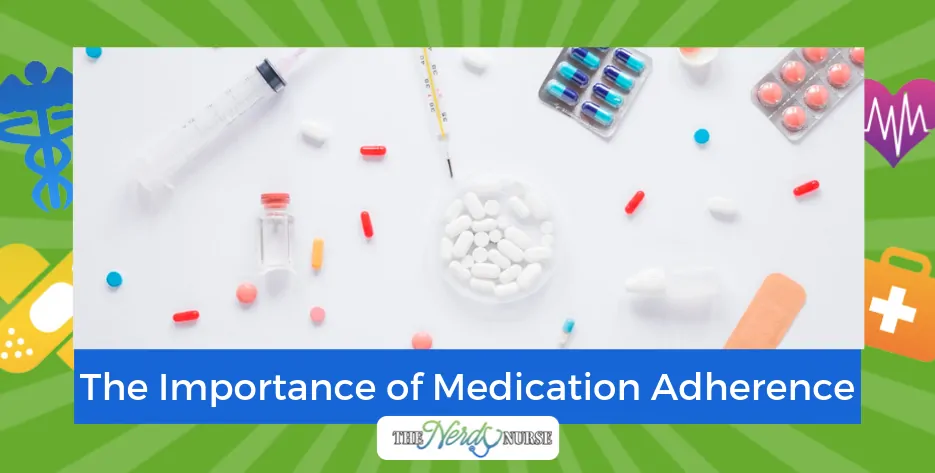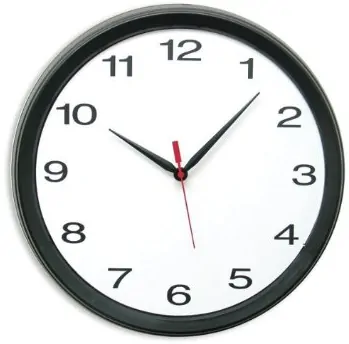This post is sponsored by Inside Rx, LLC. All opinions in this post are my own.
Medication compliance, or medication adherence, which is the phrase that aligns more closely with current research in the area, is a sensitive area in healthcare. As nurses, it’s vital that we help patients learn the importance of medication adherence. However, we have to navigate a tangled web of attitudes, budgets, and misinformation. It’s important to understand the value of medication adherence and how it positively impacts our patients. We must always seek to understand why a patient has ceased taking their medications before jumping to calling a patient non-adherent, as there is almost always an underlying reason.
Medication Compliance / Adherence
This guide will explain what medication adherence is, examine the dangers of not adhering, outline some of the potential causes, and discuss how to improve it. As nurses, we care deeply about helping patients achieve optimal health outcomes. Let’s look at the role of medications and how taking them as prescribed can make a positive impact on their quality of life.
What is Medication Adherence?
First, let’s look at what it is. According to the World Health Organization, medication adherence is, “the degree to which the person’s behavior corresponds with the agreed recommendations from a health care provider.” In other words, it’s how consistent someone takes their medications and follows the physician’s orders. Non-adherence can range from forgetfulness to willful disregard. It can also include taking someone else’s medications or choosing an alternative therapy, based on their ability to pay.
Dangers of Non-Adherence with Medications
There are many potential dangers of non-adherence. One of the worst ones is hospitalization. In fact, according to a recent study, “the risk of hospitalization was more than double in patients with diabetes mellitus, hypercholesterolemia, hypertension, or congestive heart failure who were non-adherent to prescribed therapies compared with the general population.” Basically, if they don’t follow the doctor’s orders, their treatments lose effectiveness. They risk creating a worse health situation accelerated by their non-adherence. And the consequences don’t just affect the patient. According to the National Community Pharmacists Association (NCPA), it contributes approximately $290 billion every year in added costs to the health care system in the United States.
Earlier this year, there was a story of a young man dying because he could not afford his insulin. This tragedy may have been avoided with proper education and access to resources to help make his medications more affordable. Rationing medication for someone living with type one diabetes is something that clearly most nurses know could lead to dire consequences, but do their patients? How many lives could be saved if critical conversations about medication access and adherence occurred more often?
Why Does Medication Non-Adherence Occur?
There are many factors that impact a patient’s lack of medication adherence. Here are a few of the most common:
- Cost – The patient cannot afford and does not know available resources to lower costs
- Side Effects – The patient does not like the side affects their medication causes
- Denial – The patient does not want to accept their diagnosis and is choosing to ignore it and the medication prescribed for it
- Confusion – The patient does not understand how to properly take the medication
- Lack of Education – The patient does not understand what the medication is for, how it benefits them, or the long-term side effects of not taking the medication
- Forgetfulness or Lack of Routine – The patient may not routinely take medications and simply forgets to or the patient may have declining memory and forget to take their medications
- Lack of Trust – The patient does not have a solid relationship with their provider or is fearful of what they may feel are unneeded medications
Addressing Factors of Medication Adherence
Once you’ve identified the underlying cause of non-adherence, you can offer interventions, education, and resources to address them.
One of the biggest barriers is cost. It’s often an embarrassing topic for patients so it’s one you’ll want to be tactful about. Sometimes just casually mentioning that there are programs and services available to help make medications more affordable is all that is needed to get a patient back on track with their medications.
I’m working with Inside Rx because it’s a great option to help make medication more affordable. You can get a free prescription savings card right on your phone. Their discounts average 78% for generic medication and 37% for select name-brand medications. All a patient needs to do is show the card to their pharmacist. Inside Rx is not insurance and use of the card is subject to eligibility restrictions and other terms and conditions at InsideRx.com.
More Medications and Financial Tips
As you continue to learn about medications and helping people, here are some articles you’ll enjoy next.
- Benefits of Having a Flex Spending Account
- 6 Rights of Medication Administration Mnemonic
- NANDA: Nursing Diagnosis List





